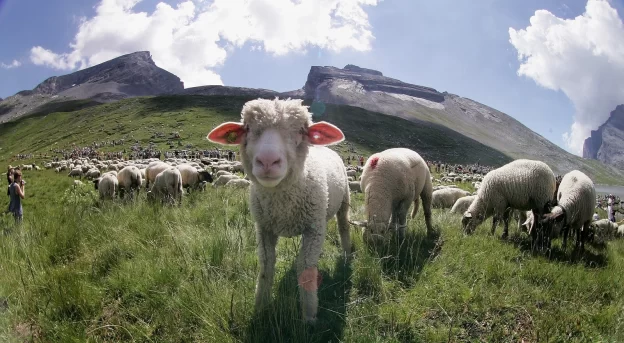- Home to Earth Day, the United Nations and the digital revolution, San Francisco is once again at the forefront of global innovation – this time, as a nature-positive, climate-resilient city of the future.
- By using a local-to-global approach that aligns community needs with new business opportunities, the city is fostering a new model for shared prosperity and well-being that can be adapted and adopted worldwide.
- Across the globe, innovation ecosystems are embracing climate action and urban transformation to drive more responsible and inclusive models of economic growth.
San Francisco has long been a pioneer in climate action. The concept of Earth Day originated here and the city has been at the forefront of initiatives ranging from mandatory composting to bold emissions reductions.
In fact, from 1990 to 2020, guided by its Climate Action Plan, San Francisco successfully reduced emissions by 48%, even as its population grew by 21%.
Today, the city is building on that momentum with bold new efforts that harness place-based innovation, nature-positive planning and responsible technological development. These efforts offer valuable lessons for other global cities navigating climate action, restoration of local biodiversity and inclusive economic growth.
Lesson #1: Nature-based climate action requires strong governance and investment
Despite being 95% developed, San Francisco sits in a biodiversity hotspot and has committed to restoring its natural heritage through cross-sector collaboration. The city’s 1t.org pledge to plant 30,000 street trees is just the beginning.
A new insight report from the World Economic Forum on San Francisco’s nature-positive efforts outlines common challenges facing cities – from fragmented governance to outdated incentives – and shows how the city is leveraging thoughtful collaboration and approaches to policy to overcome these obstacles.
Among the most compelling examples:
- The city’s India Basin Park Restoration project is turning a former industrial boatyard into a waterfront community site through a first-of-its kind development plan designed to prioritize brownfield cleanup and restored habitats while improving economic opportunity and lives in underserved communities.
- The Yerba Buena Island redevelopment established a new set of obligations for developers to restore the natural environment, showing how public-private partnerships can align infrastructure investment with ecosystem restoration.
- San Francisco is now working to establish a formal biodiversity strategy and enhance data coordination across agencies to better share insights and inform decisions – a replicable model for cities with complex administrative landscapes.
”
Lesson #2: Innovation must be responsible, accessible and human-centred
In a world of rapid technological advancement, not all innovation leads to sustainable impact and shared benefits. The Forum’s new framework for responsible innovation, published by the Global Innovation and Impact Council, offers a guide to help ensure emerging technologies maximize positive societal and environmental outcomes.
San Francisco has emerged as a pioneer for this new approach. Companies such as Waymo, for example, leveraged the city’s guidelines for emerging mobility to help ensure its autonomous vehicles support broader city goals around safety, sustainability and equity.
In addition to helping reduce emissions through the use of 100% renewable energy, the company is also helping close transit gaps – with 36% of local riders using Waymo One to connect to public transportation, according to survey data.
Lesson #3: Place-based innovation can accelerate systemic change
Now in its second year, Yes San Francisco has emerged as a powerful new model for climate-aligned economic revitalization. Developed with Citi, Deloitte, Salesforce and the San Francisco Chamber of Commerce, the initiative has grown into a coalition of more than 50 organizations.
Through Yes San Francisco, the Forum has supported two cohorts of Top Innovators, many of whom have begun piloting solutions in mobility, electrification, circular economy and adaptive infrastructure. The second cohort was announced for San Francisco Climate Week.
Local innovators, such as ChargeWheel, Re-Nuble and Kit Switch, deploy technologies that reduce emissions while creating jobs – all while testing concepts that can be applied in other cities.
In fact, one of Yes SF’s inaugural Top Innovators – a start-up called It’s Electric that works on behind-the-meter curbside charging – went from concept to commercialization in record time. Just a year after being announced as a winner of the first Top Innovators challenge in 2024, the company is now bringing its technology to eight US cities in 2025, including Boston, San Francisco and Detroit.
The Yes SF model is now scaling globally through the new Yes/Cities initiative, which aims to support 1,000 innovators across 50 cities by 2030.
What global leaders can learn
San Francisco’s efforts illustrate how cities can serve as living laboratories for sustainable solutions and local-to-global progress. By linking innovation ecosystems to local climate action plans and leveraging responsible governance practices, cities can accelerate systems-level progress on multiple fronts: mitigation, adaptation, biodiversity and equity.
Three cross-cutting lessons emerge:
- Strong governance and cross-sector coordination are essential. If city departments, data systems, and solution providers are not aligned, nature-positive and tech-enabled innovations will struggle to scale.
- Equitable access is critical to shared prosperity. To drive meaningful impact, climate strategies must prioritize underserved populations and ensure equitable access to green space, energy and digital tools.
- Global frameworks can help accelerate progress. Tools like the Forum’s framework for responsible innovation and guidelines for nature-positive cities provide flexible blueprints that cities can adapt to local needs.
As cities around the world advance their own urban sustainability agendas, San Francisco offers a model for what’s possible when policy, innovation and community converge.
Because in the face of planetary breakdown, the world doesn’t just need greener cities – we need smarter, fairer, and more regenerative ones.
https://www.weforum.org/stories/2025/04/earth-day-lessons-san-francisco-innovation-hub-climate-action/





